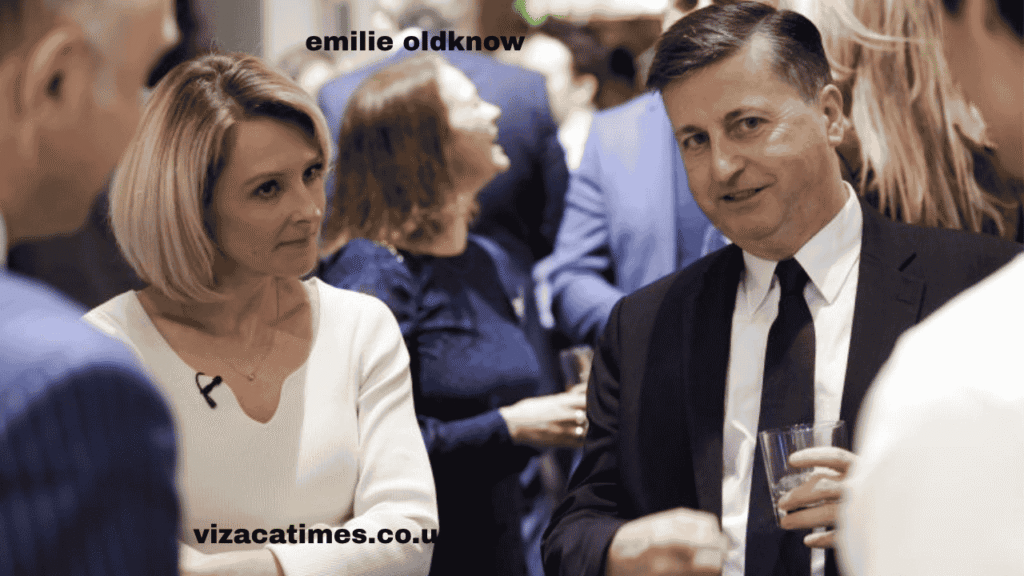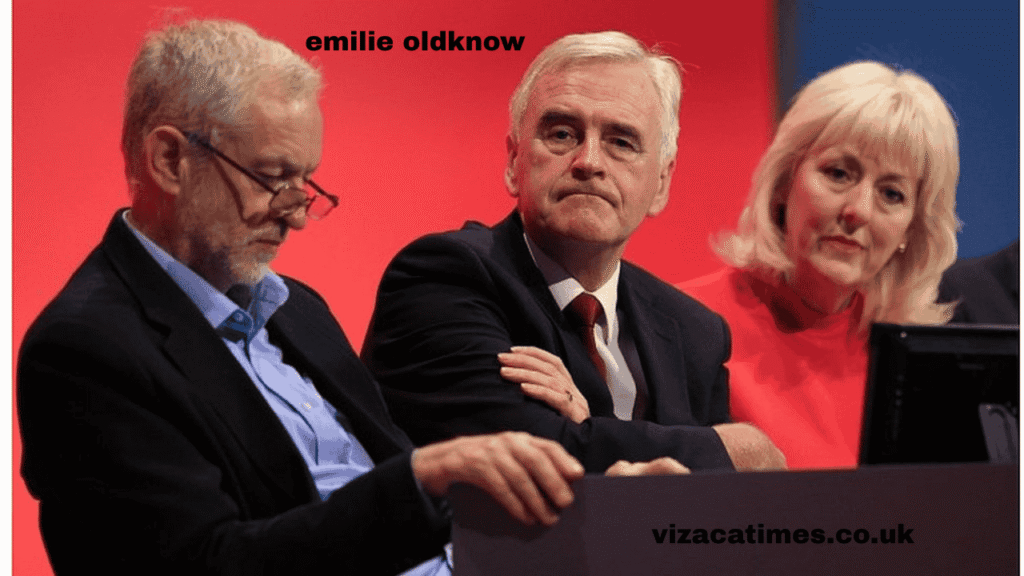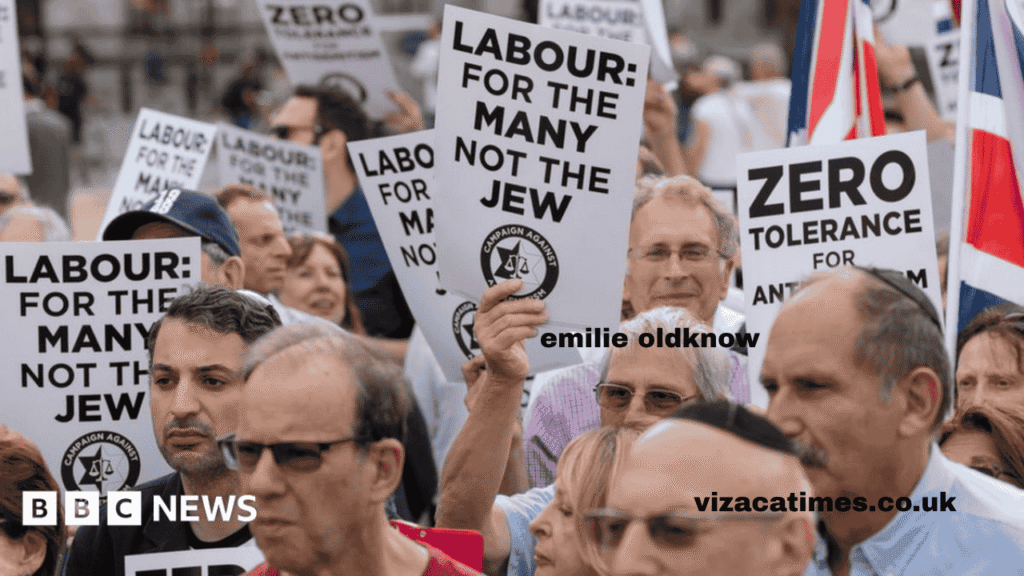Emilie Oldknow, Labour Strategist, and the Shadows of Political Power – A Deep Dive into Her Influence and Journey

Introduction: Who is Emilie Oldknow?
Emilie Oldknow is a name that has often been whispered in political circles with a mixture of respect, intrigue, and controversy. As a seasoned Labour Party figure with significant experience in internal operations and party management, Emilie Oldknow has been at the centre of many political developments over the past decade. Her rise through the ranks of Labour, her involvement in party strategy, and the controversies that have followed her, paint a complex portrait of a political figure who has shaped decisions behind the scenes. This article delves into Emilie Oldknow’s background, career, and the narratives that have placed her in the spotlight.
Early Life and Career of Emilie Oldknow

Emilie Oldknow began her professional journey grounded in public service and a strong connection to Labour values. Though much of her personal background is not heavily publicized, her dedication to the Labour movement and public sector administration was evident early in her career. Her work ethic, strategic mindset, and ability to manage complex political environments earned her recognition among party insiders.
Before stepping fully into the political domain, Emilie Oldknow held roles that combined administrative prowess with a sense of social responsibility. She was known for her ability to navigate institutional frameworks and build strong organisational networks, traits that would later become essential in her Labour Party roles.
Role in the Labour Party: Emilie Oldknow’s Climb

Emilie Oldknow served as the Executive Director of Governance, Membership and Party Services at the Labour Party. This position placed her at the centre of the party’s internal affairs, giving her a critical role in shaping policies, managing internal conflict, and overseeing disciplinary procedures. She was instrumental in directing party reforms and was considered a key ally of some senior Labour figures during the tumultuous years that defined the party’s internal divisions.
Her tenure in this role was marked by efforts to professionalise operations within Labour, improve governance structures, and centralise authority in a way that aligned with the leadership’s goals at the time. Colleagues described Emilie Oldknow as efficient, pragmatic, and loyal—qualities that made her both respected and, at times, feared.
Emilie Oldknow and the Labour Party Leaks

One of the most significant chapters in Emilie Oldknow’s public profile came with the internal Labour Party leaks in 2020. A leaked dossier revealed internal communications among senior staff members, allegedly showcasing hostility toward the party leadership under Jeremy Corbyn. Emilie Oldknow’s name was one of those heavily mentioned in the report.
The leaked document suggested that internal party figures, including Emilie Oldknow, had expressed opposition to the leadership’s direction, especially regarding the handling of antisemitism allegations. Though the full context and legality of these leaks were disputed, the fallout was substantial. Emilie Oldknow vehemently denied any wrongdoing and later launched legal action to prevent her name from being associated with the controversial leak in the public domain.
This episode cast a shadow over her reputation in some circles, while simultaneously earning her sympathy and support from those who saw her as a scapegoat in a politically charged environment. For Emilie Oldknow, the experience became a defining moment in how the public and media perceived her.
Emilie Oldknow’s Attempt at Labour Candidacy
In 2021, Emilie Oldknow attempted to step into a more visible political role when she applied to be Labour’s candidate in a high-profile by-election in the Hartlepool constituency. Despite her credentials and strong support from certain factions within the party, she was not selected.
The decision not to endorse Emilie Oldknow as the candidate surprised many and fueled speculation about ongoing factional divides within Labour. Some viewed her exclusion as a strategic move to distance the party from figures associated with the Corbyn era or internal party controversies. Others saw it as a missed opportunity to field a highly experienced and politically sharp candidate.
Emilie Oldknow and NHS Confederation Role
After her departure from frontline Labour operations, Emilie Oldknow transitioned into health policy and public administration. She took on a role with the NHS Confederation, contributing her expertise in governance and strategy to a new realm. Her move was seen as a continuation of her commitment to public service, albeit in a less politically charged environment.
In this new chapter, Emilie Oldknow applied her skills in managing large organisations and navigating policy landscapes to address challenges in the healthcare sector. Her appointment was a signal of trust in her leadership capacity, especially in an era where the NHS faced increasing strain.
The Public and Political Perception of Emilie Oldknow
To her supporters, Emilie Oldknow represents a dedicated public servant and political strategist who has weathered media storms and internal party politics with resilience. Her ability to manage large-scale operations and steer through controversies is seen as a testament to her strength and capability.
Critics, however, remain sceptical, often citing her name in relation to the Labour leaks or portraying her as a symbol of the “old guard” within Labour that resisted certain ideological shifts. The polarized views around Emilie Oldknow reflect the broader struggle within the Labour Party over identity, control, and reform.
Despite the controversy, Emilie Oldknow has maintained a relatively low public profile, choosing to operate behind the scenes. This discretion has made her even more of an enigmatic figure in the British political narrative.
Emilie Oldknow’s Legacy and Future Prospects
Whether Emilie Oldknow returns to the front lines of politics or continues to influence from the periphery, her impact on the Labour Party is undeniable. She is part of a generation of political operatives who understand the internal machinery of political institutions and how to use it effectively.
Her future may involve further roles in public policy, consultancy, or governance, where her experience can be utilised in less politically divisive settings. Alternatively, she may re-emerge as a candidate or strategist, depending on the direction Labour chooses in the coming years.
Conclusion: The Quiet Influence of Emilie Oldknow
Emilie Oldknow’s career encapsulates the quiet yet potent force of political strategy and organisational power. Though not often in the limelight, her decisions and roles have influenced major developments in British politics. Whether viewed as a behind-the-scenes operator or a controversial figure in party politics, Emilie Oldknow remains a key part of the recent history of the Labour Party.
Her story is one of resilience, political acumen, and the complexities of navigating power structures in modern British politics. As the political landscape continues to shift, the legacy and potential return of Emilie Oldknow remain points of speculation and interest.
Also Read : Andy Collis – The Enigmatic Professional Behind the Scenes, Who Is Andy Collis Really?



